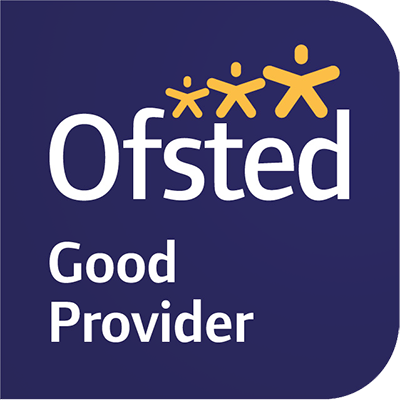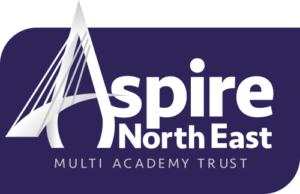ICT & Computer Science Curriculum Overview
Knowledge Organisers
-
• Year 7 Computing -
• Year 7 Computing -
• Year 7 Computing -
• Year 7 Computing Past, Present & Future • Year 9 The Ethics & Computing
• Year 10 BTEC Computing – The Wider implications of Digital Systems
-
• Year 7 Computing Scratch • Year 8 Computing Internet Safety
• Year 9 Computing Introduction to User Interfaces
• Year 10 BTEC Computing – The Wider implications of Digital Systems
-
- Exceptional problem-solving skills
- A High level of competency in regards to computer skills
- Basic knowledge of the difference between ICT and Computing
- Knowledge of effective digital working practices to help understand the way businesses use technology in real-life situations
- Digital literacy skills needed to live, learn, and work in a society where communication and access to information is increasingly through digital technologies
- Passion for the curriculum and interest in future careers in the relevant industries
- Computing driving global changes and knowledge gained is critical for students to exploit opportunities gained in a digital world
- Resilience (Aiming High, Staying Positive, Learning from Mistakes)
- Collaboration (Teamwork Leadership Communication)
- Creativity (Originality, Problem Solving, Independent Study)
Key Stage 3 Curriculum
Our Key Stage 3 Curriculum:
Three-year KS3 with 1 hour per week allocated to Computing. At KS3 the students follow the National Curriculum Map which is Computer Science (CL), Information Technology (IT) and Digital Literacy (DL).
Download the full policy at the link above for a full break down of learning for each Term.
Key Stage 4 Curriculum
Our Key Stage 4 Curriculum:
The KS4 Curriculum is taught over 2 years. At Key Stage 4 Year 10 and 11 students will be studying BTEC Tech Awards Digital Information Technology. With each class having 3 hours of BTEC DIT per week taught in mixed ability groups.
Aim
Here at Sandhill View Academy, we aim to securely equip all of our students for life beyond school as successful, confident, responsible and respectful citizens. We believe that education provides the key to social mobility and our curriculum is designed to build strong foundations in the knowledge, understanding and skills which lead to academic and personal success. We want our students to enjoy the challenges that learning offers. And ultimately, we want students to ‘Know More, Do More and Go Further’
Our aims are underpinned by a culture of high aspirations. Through developing positive relationships, we work towards every individual having a strong belief in their own abilities so that they work hard, build resilience and achieve their very best.
Intent
The curriculum includes formal teaching through subject areas, assemblies and extracurricular activities. We regularly review content to ensure we continue to meet our curriculum aims. The ICT and Computing curriculum embeds the Three Pillars of Progression; Computer Science, Information Technology and Digital Literacy. The ICT and Computing curriculum is planned to enable all students to develop:
Throughout our programmes of study, every attempt is made to make explicit links to careers and the world of work. In addition to subject specific links, we aim to explicitly reinforce the skills and aptitudes which support employers say are important in the workplace;
The British values of democracy, the rule of law, individual liberty, and mutual respect of those with different faiths and beliefs are taught explicitly and reinforced in the way in which the school operates. We are also explicitly embedding transferable ‘Skills Builder’ skills such as problem solving, staying positive and teamwork to prepare our students for careers and life after school.
Sequence and Structure
Our curriculum covers Key Stage 3 (years 7, 8, 9) and is built upon at Key Stage 4 (10 and 11). In Key Stage 3 students are taught topics which are linked to the GCSE specifications. At Key Stage 3, pupils have one lesson of Computing, per week. At Key Stage 4, pupils have six lessons of GCSE option per 2-week timetable.
Covid Recovery to ‘unlock learning’
We have built Covid Recovery into our long and short term planning by including connect activities with lockdown content, revision to focus on topics studied during this period. There will be opportunities for modelling and practice of second order concepts and written skills to support progress. We feel this will help to ‘unlock learning’. At KS3 we have focused on embedding a range of IT essential skills which were impacted upon during covid as many students were not able to develop these skills without access to the modern technology available. These skills include folder organisation, saving files, choosing the right software for a project and printing. We have focused on programming languages for Computer Science as many students were unable to access the specialist software from home due to available digital devices.
Literacy
We know that students who read well achieve well. As such all subject areas are committed to providing regular opportunities to read extensively. In Computing we have aspirations for our students to use ambitious vocabulary and are using frayer models and ‘push’ techniques to widen the tier 2 and tier 3 vocabulary students use orally and in the work they produce. Coherent and fluent writing skills are also imperative for student achievement, so we support student writing skills by offering opportunities for extended writing, with modelling, and sentence stems to support. All curriculum areas use literacy end point document which details yearly end points for reading, writing and oracy to ensure consistent literacy skills embedded across the curriculum.
Curriculum Content
Skills Builder
We are also explicitly embedding transferable ‘Skills Builder’ skills such as problem solving, aiming high and teamwork to prepare our students for higher education and employability skills for the future. This year in Computing we will focus on TEAMWORK including group decision making and recognising the value of others. PROBLEM SOLVING by exploring complex problems by analysing cause and effect, and understanding through practical challenges. Furthermore, we want our students STAYING POSITIVE.
How does our Curriculum cater for students with SEND?
Sandhill View is an inclusive academy where every child is valued and respected. We are committed to the inclusion, progress and independence of all our students, including those with SEN. We work to support our students to make progress in their learning, their emotional and social development and their independence. We actively work to support the learning and needs of all members of our community.
A child or young person has SEN if they have a learning difficulty or disability which calls for special educational provision to be made that is additional to or different from that made generally for other children or young people of the same age. (CoP 2015, p16)
Teachers are responsible for the progress of ALL students in their class and high-quality teaching is carefully planned; this is the first step in supporting students who may have SEND. All students are challenged to do their very best and all students at the Academy are expected to make at least good progress.
Specific approaches which are used within the curriculum areas include:
- Seating to allow inclusion
- Differentiation activities to stretch and support in all lessons
- Resources are accessible yet challenging
- Displays and visual learning tools are used where necessary
- Where appropriate support from additional adults is planned to scaffold students learning
- Group work and discussion
- Clear teacher/student communication
- Feedback that allows students to make progress, whether written or verbal
- Independent study
- Intervention when require
How does our curriculum cater for disadvantaged students and those from minority groups?
As a school serving an area with high levels of deprivation, we work tirelessly to raise the attainment for all students and to close any gaps that exist due to social contexts. The deliberate allocation of funding and resources has ensured that attainment gaps are closing in our drive to ensure that all pupils are equally successful when they leave the Academy. More specifically within the teaching of Computing, we;
- Work to identify barriers, interests and what might help each pupil make the next steps in learning using lead practitioner research and actions to support.
- Provide targeted support for under-performing pupils during lesson time, such as targeted questioning, live marking and seating, in addition to revision lessons and intervention outside school hours.
- Use strategies best suited to addressing individual needs
- Ensure there are opportunities for students to make use of resources and gain homework support outside of lesson time through the use of Teams
- Provide students with revision materials to reduce financial burden on families
How do we make sure that our curriculum is implemented effectively?
- The Computing lead teacher is responsible for designing the Computing curriculum and monitoring implementation.
- The subject leader’s monitoring is validated by senior leaders.
- Staff have regular access to professional development/training to ensure that curriculum requirements are met and subject knowledge developed
- Effective assessment informs staff about areas in which interventions are required. These interventions are delivered during curriculum time to enhance pupils’ capacity to access the full curriculum.
- Curriculum resources are selected carefully and reviewed regularly.
- Assessments are designed thoughtfully to assess student progress, long term knowledge retrieval and also to shape future learning.
- Assessments are checked for reliability within departments and across the Trust
We have staff who mark for exam boards to ensure reliability of data. There is frequent contact with exam boards (OCR, Pearson & NCCE) to ensure that the relevant and up to date content, courses and topics are being taught across all key stages.
GAP analysis is used throughout the assessment process. This then helps us to identify the pupils who are most in need of intervention sessions.
How do we make sure our curriculum is having the desired impact?
- Examination results analysis and evaluation
- Termly assessments based upon prior learning for retrieval-analysis and evaluation meetings
- Lesson observations
- Learning walks for KS3 and KS4 based upon departmental priorities
- Work sample for each year group cross referenced against milestone assessment end points
- Regular feedback from teaching staff during department meetings
- Regular feedback from Middle Leaders during curriculum meetings
- Pupil Surveys
- Parental feedback




